Early on a Sunday morning last summer, the villagers of Epulu awoke to the sounds of shots and screaming. In the eastern reaches of the Democratic Republic of the Congo, that can often mean another round of violence and ethnic murder is under way. In this case, however, something even more horrific was afoot.
The village was under attack from a feared militia. In this case, the gunmen were motivated not by tribal rivalry but by land, gold and ivory. The village is situated inside a nature reserve in the Ituri rainforest, an area covering 5,000 square miles that is supposed to be off limits to hunters and gold prospectors. The militia, led by a former elephant poacher called Paul Sadala, has terrorised communities inside the reserve since 2012, employing methods brutal even by the grisly standards of this part of the world.
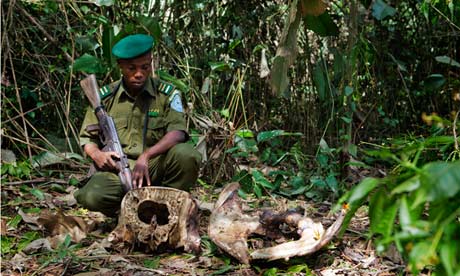
“The attacks were absolutely terrifying,” said Justin Oganda, a representative of the residents of Epulu who remain displaced in Mambasa, about 50 miles away. By the end of that day in June, the militiamen had murdered, raped, burned people alive and even eaten the flesh and heart of one of their victims. “To have killed so many people, to burn them alive, the cannibalism … Mentally they cannot be normal,” Oganda added.
As ever with Congo, it is not just a simple tale of victims and villains. Sadala, who goes by the nom de guerre Morgan, and his “Mai Mai Morgan” gunmen are thought to have powerful supporters in the security forces who enable their lucrative illegal trade in ivory and smuggled gold. Some local people with an eye on the gold in the ground beneath their feet tacitly support Morgan, who improbably also likes to be called Chuck Norris.
“There is complicity between [Morgan] and certain elements within the army,” said Jefferson Abdallah Pene Mbaka, the MP for Mambasa. “With the support of certain army authorities [Mai Mai Morgan] have increased their poaching activities. The sale of ivory is organised by these figures in the army.” Many people in the region believe soldiers have orders not to arrest Morgan.
Morgan’s principal targets are those who operate and police the Unesco-recognised world heritage site known as the Okapi wildlife reserve, or by its French acronym, RFO. The laws of the reserve forbid the hunting of endangered species, especially elephants and okapi, and the exploitation of its gold reserves.
The headquarters of the park rangers is in Epulu, the village targeted in the attack last June. “Their goal was to kill all the guards, but most of us escaped,” said Captain Benjamin Kalimutima Lulimba, a park ranger living in Epulu. “They murdered two guards, Fiston and Badus, and the wife of a guard called Amisi. They tied up Badus and Amisi’s wife, put them inside a tyre and burned them alive. Then they cut and ate part of Fiston’s leg, and they cut out his heart and ate it.”
A group of militia fighters then broke off and moved towards the okapi zoo in the rangers’ compound. The zoo had been established 25 years ago to house a small number of the timid and endangered okapis that are the familiar image of Congo’s diverse fauna. Morgan’s men slaughtered 13 of the 14 okapis there, and wounded the 14th so gravely it later died from its injuries. For Rosmarie Ruf, a conservationist with Gilman International Conservation (GIC) and co-founder of the zoo, this was the brutal end to a lifetime’s work. “Twenty-five years of work is gone,” said Ruf, sitting metres from the empty okapi pen as the Epulu river rushed past. “All that effort, all that money. It’s my life which has been … I don’t want to say ruined, but here now I’m standing in front of nothing.”
The suspicion is that at least some of Morgan’s booty winds up 280 miles south-west of Epulu, in the hands of the Congolese army. At the end of 2012 the United Nations group of experts on Congo issued a report that accused Congolese general Jean Claude Kifwa in the provincial capital, Kisangani, of giving “arms, ammunition, uniforms and communication equipment to Mai Mai Morgan in exchange for ivory”.
Kifwa has vigorously denied any link to the militia, but one of Morgan’s fighters, captured and held in prison in the district capital, Bunia, confirmed the trade with figures in Kisangani. “Morgan sent gold and ivory to Kisangani and our weapons came from there,” said Basomaka Abundu, who took part in Morgan’s attack on Mambasa in January.
Despite the brutality of the attacks, many reserve dwellers express sympathy for Morgan, with some even confessing to outright support for him. “I am behind Morgan,” said an 18-year-old in a small village not far from Epulu who refused to give his name. “Because Morgan is here the rangers cannot patrol and we are free to dig for gold. But I wouldn’t support him if he came here and burned our homes.”
Most people, however, have a more nuanced position, saying that although revolted by his methods, they support his stated desire to see the size of the reserve reduced and more rights given to locals to hunt and dig.
“The forest is where we find what we need to survive,” said Matope Mapilanga, the leader of a Pygmy community on the edge of the reserve. “[The park authorities] have cut our land, there is now a part we cannot access. It has worsened in the last few years, since the RFO got bigger. We would prefer that the people of the RFO weren’t in our forest. We feel like the big non-governmental organisations and the rangers have privileged the animals over the people.”
The conservationists remain unconvinced, though. “The people who say they support Morgan are just those people who want to dig gold and exploit timber,” said Robert Mwinyihali, the project leader for Wildlife Conservation Society’s (WCS) work in the Ituri rainforest. WCS has given financial backing to the park rangers and the Congolese Wildlife Authority’s work in the reserve. “There are laws in Congo about the exploitation of resources,” said Mwinyihali. “These people can either respect those laws, or they can ignore them and commit criminal acts.”
WCS and GIC’s support for the park rangers has led to accusations that they are partly responsible for the militarisation of the conflict. However, Mwinyihali said the biggest problem was the absence of effective intervention by the Congolese state, which meant NGOs and the park rangers had had to fulfil roles that should be the government’s responsibility: for example, bringing in armed guards to track Morgan. Bernard Iyomi Iyatshi, the director of park rangers, complained about a lack of government funds for his anti-poaching operations.
Mwinyihali also accused the Congolese government of doing little to reconcile the park authorities and local communities. As mutual resentment and misunderstanding grows, Morgan and other armed groups are able to exploit the toxic atmosphere and continue their poaching, digging and savage attacks.
“There are no job opportunities created by government investment here,” said Mwinyihali. “This has led to this crisis, where people have no option but to want to dig for gold. This leads to the conflict with the park authorities, and then it is only a small step to people taking up arms and joining militias.”
Despite being a member of the ruling party, Mbaka is an outspoken critic of the government’s policy, or lack of it, in the region. “Swaths of the park are inaccessible, there’s just no infrastructure,” he said. “It’s an absolute scandal, there’s potentially so much wealth here. It also means it is difficult to track and stop men like Morgan.”
Even if Morgan is caught, people fear that his powerful backers in the army will find another militia to continue poaching and stealing gold. Back in Mambasa, Justin Oganda thinks carefully when asked what could resolve the crisis. “Really, we need to discourage the international markets for ivory and smuggled gold,” he said. “That would help. Until then, these armed groups will keep coming to kill the animals and take the minerals.”
Poaching
The growth in the global ivory trade has had a devastating impact on the African elephant population. An estimated 17,000 elephants were killed for their ivory by poachers in 2011, and while there are no definitive statistics for 2012, poaching is thought to be on the rise.
On 14 March a Convention on International Trade in Endangered Species (Cites) conference issued a warning to the eight countries most heavily implicated in the ivory trade; they have until July 2014 to formulate and implement plans to reduce the trade in ivory or face sanctions.
The supply countries named are Uganda, Kenya and Tanzania, but the problem in the Democratic Republic of the Congo is significant. The population of elephants in eastern Congo has fallen by about 50% over the past decade due to poaching and conflicts in the region.
About 70% per cent of the ivory from slaughtered African elephants goes to China, another of the countries warned by Cites. The price of ivory has rocketed. Cites reported that the price more than doubled between 2004 and 2010, from about $300 to $700 (£198 to £462) a kilogramme. An Associated Press investigation in 2010 claimed ivory was being sold in China for $1,800 a kilogramme.
The endangered and protected okapi is also hunted in the Ituri rainforest. Rosmarie Ruf, of Gilman International Conservation, estimated that in the 1990s there were 5,000 okapis in the rainforest. Ten years later that figure had fallen to 3,400. The current population is not known but a similar drop in the next 10 years would be disastrous.
This article was written by Pete Jones and published in the Guardian. Research for this article was funded by the Pulitzer Center on Crisis Reporting

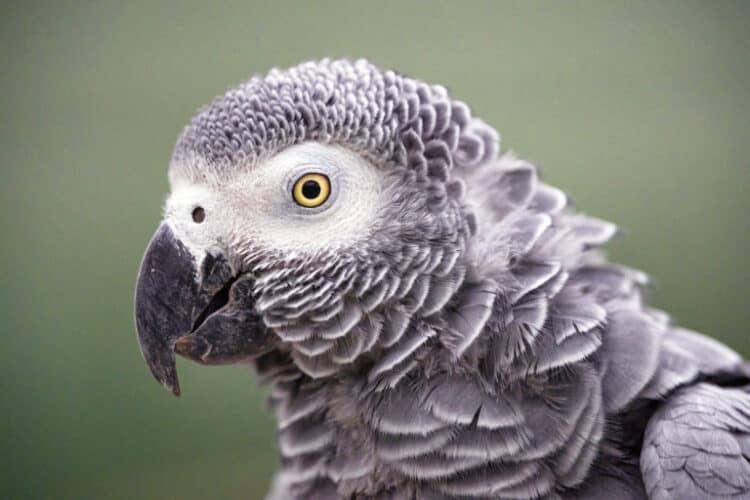
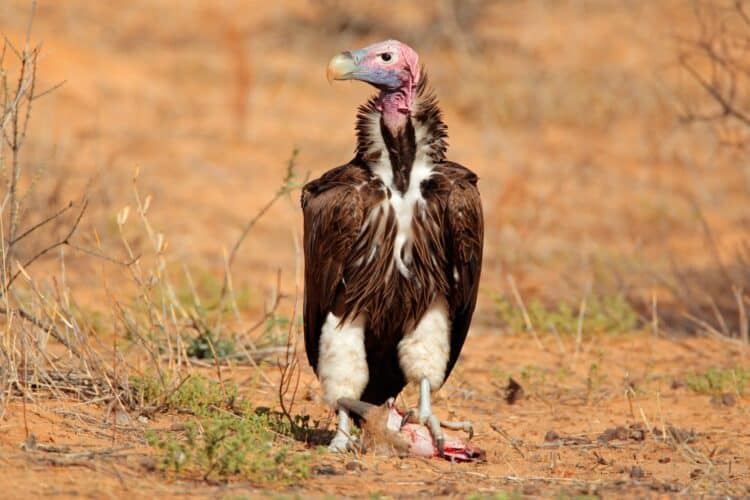
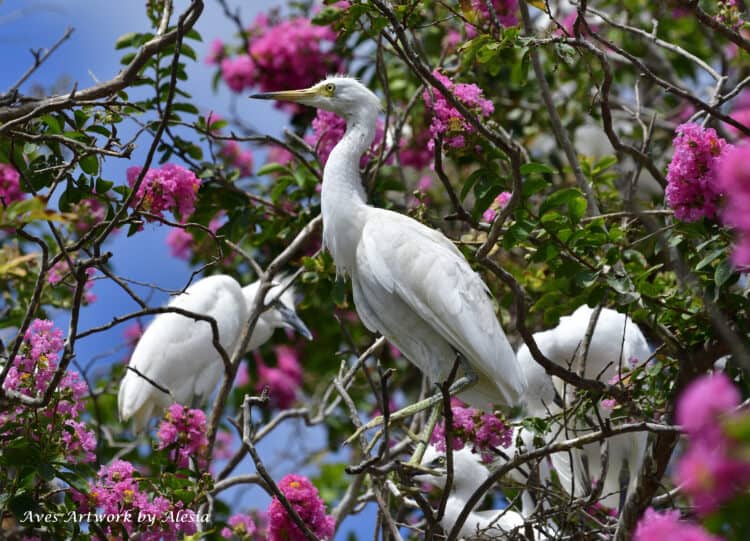
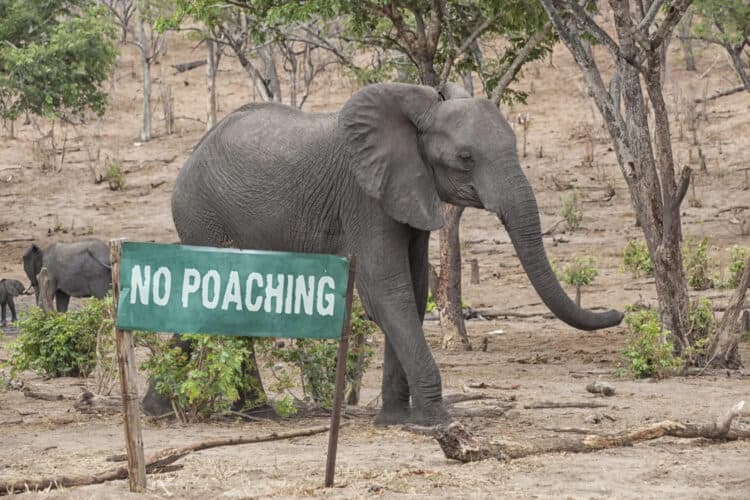
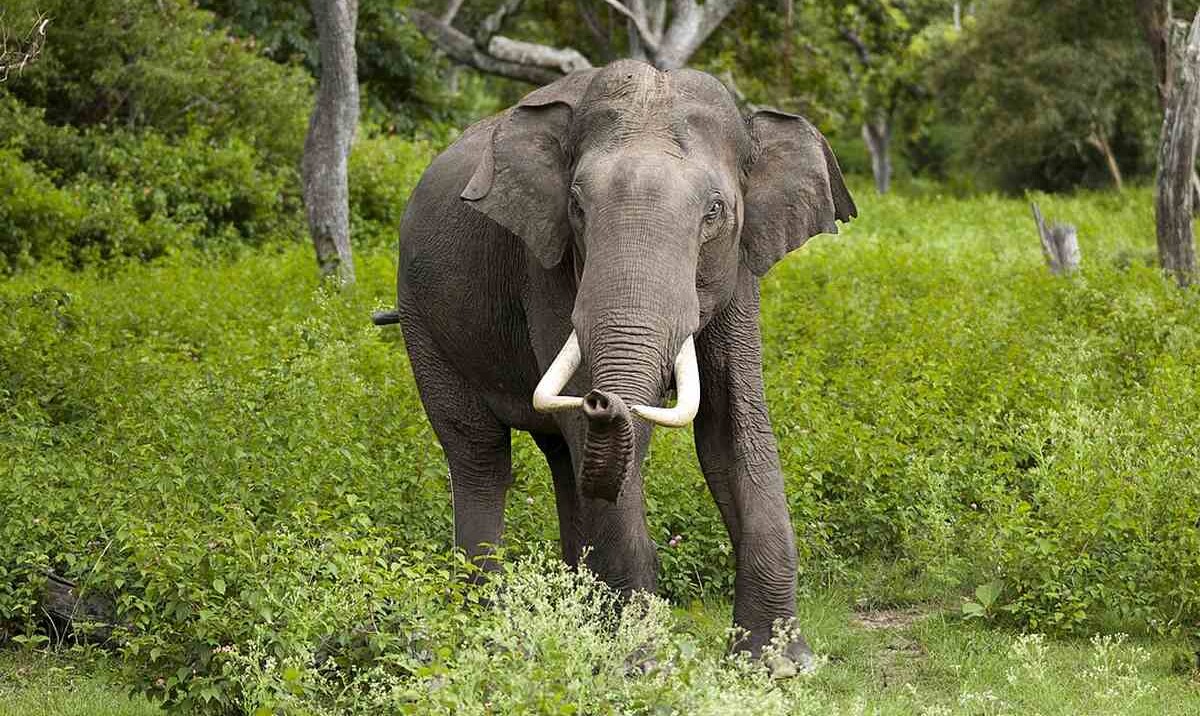
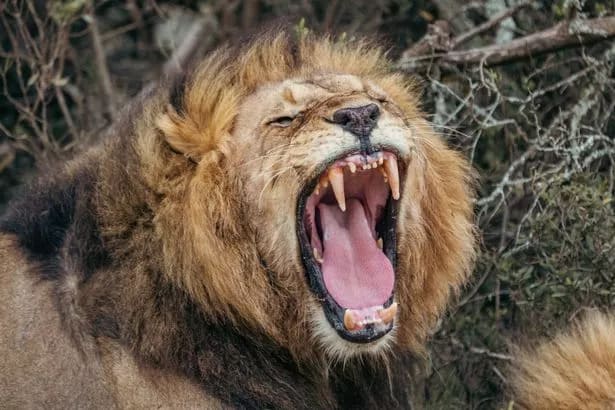
Leave a Reply